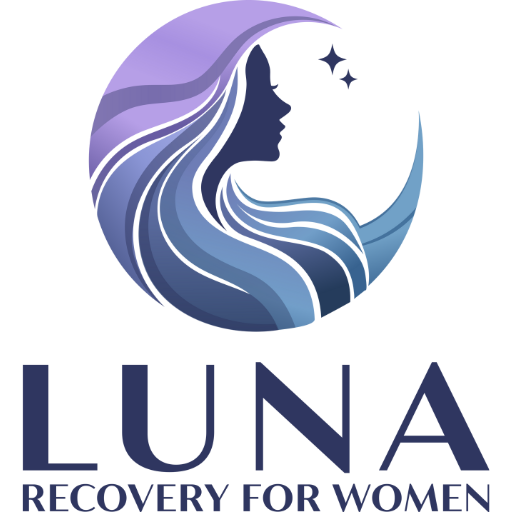Substance abuse and mental health disorders often go hand in hand, creating complex challenges for those affected. When an individual experiences both a substance use disorder and a mental health condition—such as depression, anxiety, or bipolar disorder—it is referred to as a dual diagnosis. Properly addressing both issues is essential because treating one while neglecting the other can increase the risk of relapse and prolong recovery struggles.
At Luna Recovery Center for Women, we specialize in comprehensive, integrated care that simultaneously addresses both substance use and mental health disorders. Our approach provides individuals with the tools they need for long-term healing and recovery.
What is Dual Diagnosis?
Dual diagnosis, also known as co-occurring disorders, occurs when someone struggles with both substance use and a mental health condition. Common mental health disorders associated with substance abuse include:
- Depression
- Anxiety disorders
- Bipolar disorder
- Post-Traumatic Stress Disorder (PTSD)
- Personality disorders
While substance abuse does not always cause mental illness—and vice versa—the two often fuel each other, making recovery more challenging without professional support.
The Connection Between Mental Health and Substance Use
Self-Medication
Many people use drugs or alcohol as a way to self-medicate symptoms of untreated mental health conditions. For example, someone struggling with anxiety may turn to alcohol for temporary relief, but over time, this reliance can lead to dependency and worsen underlying issues.
Neurochemical Imbalances
Both mental health disorders and substance use impact brain chemistry, particularly neurotransmitters like dopamine and serotonin, which regulate mood. Prolonged substance abuse can disrupt these chemicals, making it even harder to maintain emotional stability.
Increased Vulnerability
People with existing mental health conditions are at a higher risk of developing substance use disorders. Similarly, prolonged substance use can increase the likelihood of developing a mental health disorder. Genetics, trauma, and stress can also contribute to this vulnerability.
Signs of Dual Diagnosis
Recognizing dual diagnosis can be difficult because symptoms often overlap. If you or a loved one is experiencing any of the following, it may indicate a co-occurring disorder:
Substance Use Symptoms
- Strong cravings or inability to quit
- Ignoring responsibilities at work, school, or home
- Engaging in risky behaviors while under the influence
- Experiencing withdrawal symptoms when not using
Mental Health Symptoms
- Persistent feelings of sadness or mood swings
- Excessive anxiety or fear
- Changes in sleep patterns or appetite
- Social withdrawal and relationship struggles
- Feelings of hopelessness, worthlessness, or guilt
If these symptoms sound familiar, seeking an evaluation from a professional can help determine the best course of action.
Why Integrated Treatment Matters
When someone has both a mental health condition and a substance use disorder, addressing one issue while ignoring the other often leads to ineffective results. For example, treating depression with medication while neglecting an underlying alcohol addiction can result in relapse and worsening symptoms.
The most effective approach is integrated treatment, which means treating both conditions at the same time.
Benefits of Integrated Treatment:
✅ Comprehensive Care: Focuses on physical, emotional, and mental health.
✅ Better Outcomes: Simultaneously treating both conditions improves long-term success.
✅ Relapse Prevention: Equips individuals with coping strategies for both addiction and mental health struggles.
✅ Ongoing Support: Many programs offer continued care, ensuring long-term stability.
Proven Therapies for Dual Diagnosis
At Luna Recovery Center for Women, we use a variety of evidence-based therapies tailored to individual needs:
Cognitive Behavioral Therapy (CBT)
- Helps change negative thought patterns and behaviors
- Teaches coping strategies for cravings, stress, and triggers
Dialectical Behavior Therapy (DBT)
- Focuses on mindfulness, distress tolerance, and emotional regulation
- Useful for individuals with intense emotions or self-harm behaviors
Trauma-Informed Therapy
- Addresses past trauma that may contribute to addiction and mental health struggles
- Techniques like EMDR (Eye Movement Desensitization and Reprocessing) help process unresolved trauma
Medication-Assisted Treatment (MAT)
- Combines FDA-approved medications with therapy
- Helps reduce cravings and stabilize mood
Holistic Therapies
- Activities like yoga, mindfulness, and art therapy promote overall well-being
- Encourages stress reduction and healthier coping mechanisms
The Role of Family in Recovery

Mental health and substance use issues can take a toll on family relationships. However, family support is crucial for lasting recovery. Family therapy can help:
- Rebuild trust and improve communication
- Educate loved ones about dual diagnosis
- Set healthy boundaries
- Reduce stigma surrounding addiction and mental health
When families are involved in the recovery process, individuals have a stronger support network, increasing their chances of long-term success.
Long-Term Recovery & Aftercare
Recovery from dual diagnosis is an ongoing journey that requires consistent support. After completing a structured treatment program, individuals benefit from:
✔ Outpatient Therapy: Regular check-ins to prevent relapse
✔ Peer Support Groups: 12-Step programs and similar groups offer community and accountability
✔ Alumni Networks: Continued connection with a recovery community
✔ Healthy Lifestyle Changes: Encouragement to maintain exercise, nutrition, and self-care routines
Why Choose Luna Recovery for Women?
At Luna Recovery Center for Women, we believe in treating the whole person. Our integrated approach helps individuals develop the skills and resilience needed for lasting recovery.
What Sets Us Apart?
🔹 Personalized Treatment Plans: Based on a full assessment of mental health, substance use history, and individual goals.
🔹 Expert Team: Experienced clinicians, therapists, and recovery specialists using evidence-based methods.
🔹 Holistic Approach: Incorporating wellness practices alongside medical treatment.
🔹 Ongoing Support: From detox to outpatient care, we guide clients every step of the way.
Take the First Step Toward Healing
If you or someone you love is struggling with both addiction and mental health challenges, you’re not alone. Help is available, and recovery is possible.
Contact Luna Recovery Center for Women today to learn more about our integrated dual diagnosis programs. Our compassionate team is ready to support you on your journey to a healthier, more fulfilling life.
A brighter future starts now—let’s take that step together.


